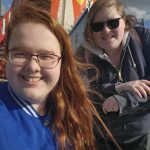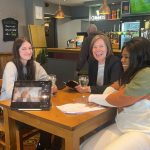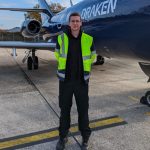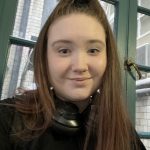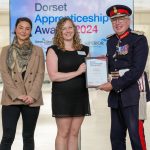 Produced by Guest blogger
Produced by Guest blogger
We spoke to Emma Young, studying BSc (Hons) Occupational Therapy as a mature student, about being selected for the Council of Deans of Health’s Student Leadership Programme (150 Leaders) and how it has benefited her studies and career aspirations. Read on to find out more about Emma’s experience of the programme.
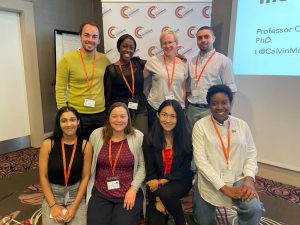 Please explain a little bit about what the programme is and the purpose of it
Please explain a little bit about what the programme is and the purpose of it
The Council of Deans of Health’s Student Leadership Programme has been developed to promote and support leadership skills for nursing and the allied health professional future workforce. It’s co-funded by the Council of Deans of Health, the Burdett Trust for Nursing and Health Education England. It’s a great opportunity to explore what leadership means to you and develop leadership skills.
Please give details about what you get involved with for the programme
The programme holds events throughout the year for participants, including conferences with lectures from industry leaders, online webinars and opportunities to network and be involved with local and national events. Being able to meet and network with the other inspirational students is such an important part of the programme. Alongside this, every participant has a personal coach who is there to support you with your leadership journey and in developing any projects that you’d like to initiate.
It offers a unique opportunity to explore innovation areas in our professions with a fantastic support network. It’s been amazing to be inspired hearing about all of the projects that the students have been busy creating. There is a blog showcasing student projects on the Council of Deans of Health’s Student Leadership Programme website. I’m really grateful for the wisdom and advice that we have been exposed to from the programme speakers and networks.
Please describe the selection process for the programme
You can apply online, and applications open on 3 April 2023. Anyone in their first or second year of pre-registration study can apply and fill out an application form with around fifty places per year to fill. If you have a passion for something in your practice area or want to explore your own leadership or self-leadership skills, I’d really recommend considering applying.
Are there any exciting projects you’re currently working on as part of the programme?
I’m going to be presenting a lightning talk at The Royal College of Occupational Therapists annual conference in June this year. The title is ‘Embedding a culture of inclusion: Improving the experience of practice-based learning for neurodivergent students.’ I’ve teamed up with other students from SSHINE (Sharing Student Healthcare Initiative for Neurodiverse Equality) to deliver the presentation.
SSHINE is a multi-professional student lead group that was created by two of the 150 leaders alumni. This initiative has the aim of improving practice-based learning for neurodivergent healthcare students and facilitating movement towards equity, whilst building better working relationships within the healthcare workforce. I’ve had the chance to join the committee of SSHINE and we have many exciting projects coming up!
How useful do you find the programme and what does it mean to you to be part of it?
I’m grateful for having had the chance to work on something that’s making a difference! I was a bit concerned that the programme would put a strain on my academic studies. However, it’s been the opposite. I’ve been challenged to move to the edges of my comfort zone and to make the most of the opportunities available to students. There has been so much personal learning and growth, and as a result it has supported and enhanced my academic studies.
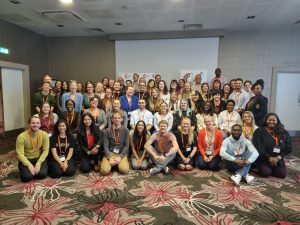 Being neurodivergent myself, I only realised as an adult that I was dyslexic and autistic. Through 150 leaders I have been able to contribute to the work of SSHINE that supports people in a similar position to myself. I’m passionate about strength-based approaches and would love to see some of the stigmatised views of neurodivergent conditions re-framed. I feel projects that support diversity within the health and social care workforce are essential and I believe that the insights that professionals with lived experience of disability can bring to services are invaluable.
Being neurodivergent myself, I only realised as an adult that I was dyslexic and autistic. Through 150 leaders I have been able to contribute to the work of SSHINE that supports people in a similar position to myself. I’m passionate about strength-based approaches and would love to see some of the stigmatised views of neurodivergent conditions re-framed. I feel projects that support diversity within the health and social care workforce are essential and I believe that the insights that professionals with lived experience of disability can bring to services are invaluable.
I would definitely recommend other students going for it and seizing this opportunity. Lots of people come into healthcare professions as mature students pursuing a second career, and for me it’s been a great way of integrating my previous skills and experience.

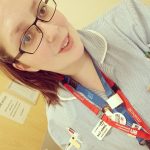 Why BU’s Yeovil Campus for Nursing was right for me
Why BU’s Yeovil Campus for Nursing was right for me A mature student’s account on studying nursing at our Yeovil Campus
A mature student’s account on studying nursing at our Yeovil Campus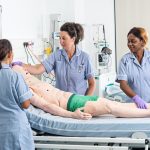 A mature student’s perspective on Adult Nursing and international placements
A mature student’s perspective on Adult Nursing and international placements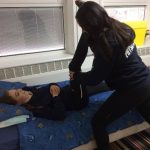 Choosing Physiotherapy
Choosing Physiotherapy


